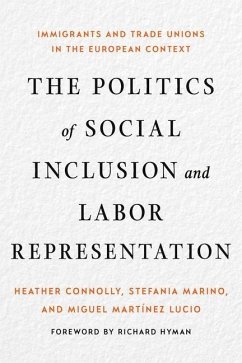Tripartism-the national-level interaction among representatives of labor, management, and government-occurs infrequently in the United States. Based on the U.S. experience, then, such interactions might seem irrelevant to economic performance and policymaking. The essays in this volume reveal the falsity of that assumption.
Contributors from eight industrialized countries (Australia, Germany, Ireland, Italy, Japan, Korea, the Netherlands, and the United States) examine the changing nature of labor-management relations, with a particular focus on the role of tripartism and the decentralization of collective bargaining. Although nonexistent in the United States and on the decline in Japan and Australia, tripartism flourishes in Germany, Ireland, and the Netherlands, expanding beyond traditional corporatist partners to include women's organizations, senior citizens, and other representatives of "civic society." The vibrancy of the coordinating mechanisms that help shape employment conditions and labor policy contradicts the traditional belief that an overpowering unilateral decentralizing shift is underway in labor-management interactions. The contributors show that these mechanisms are in fact increasing in the face of intensified pressures, promoting greater flexibility in work organization and working time.
Hinweis: Dieser Artikel kann nur an eine deutsche Lieferadresse ausgeliefert werden.
Contributors from eight industrialized countries (Australia, Germany, Ireland, Italy, Japan, Korea, the Netherlands, and the United States) examine the changing nature of labor-management relations, with a particular focus on the role of tripartism and the decentralization of collective bargaining. Although nonexistent in the United States and on the decline in Japan and Australia, tripartism flourishes in Germany, Ireland, and the Netherlands, expanding beyond traditional corporatist partners to include women's organizations, senior citizens, and other representatives of "civic society." The vibrancy of the coordinating mechanisms that help shape employment conditions and labor policy contradicts the traditional belief that an overpowering unilateral decentralizing shift is underway in labor-management interactions. The contributors show that these mechanisms are in fact increasing in the face of intensified pressures, promoting greater flexibility in work organization and working time.
Dieser Download kann aus rechtlichen Gründen nur mit Rechnungsadresse in A, D ausgeliefert werden.
Hinweis: Dieser Artikel kann nur an eine deutsche Lieferadresse ausgeliefert werden.









